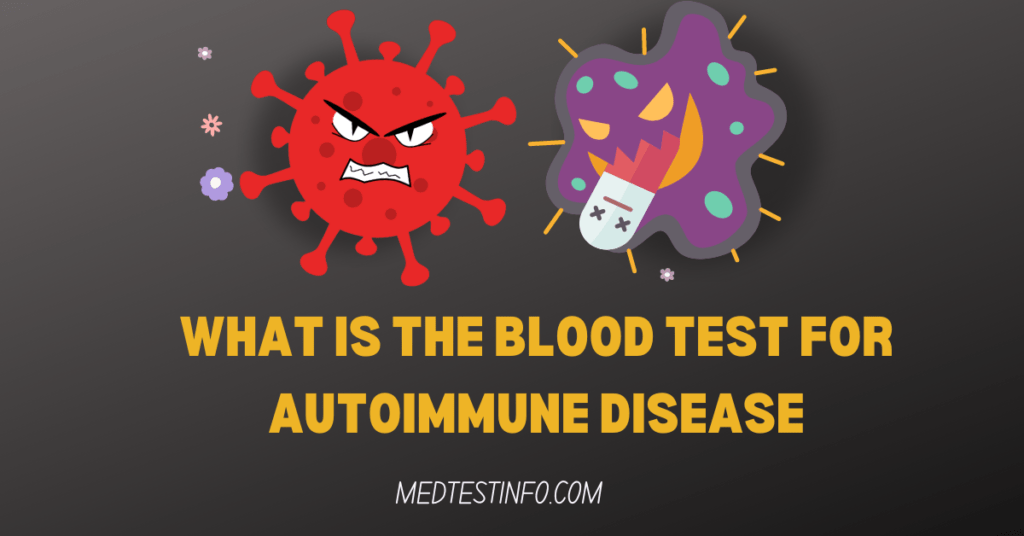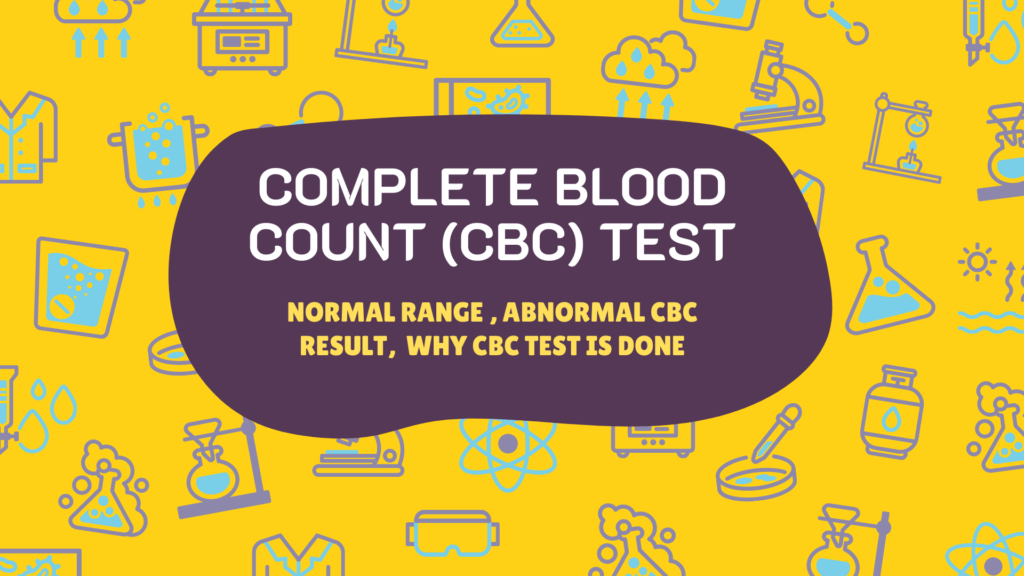
Overview
Autoimmune disorders develop when the body’s immune system, which is supposed to fight against infections and foreign invaders, mistakenly attacks healthy tissues. These disorders can impact several organs, including the joints, skin, thyroid, and internal systems, resulting in chronic discomfort, weariness, and malfunction. Blood tests for autoimmune diseases are among the most popular diagnostic tools. They detect abnormal immunological activity by assessing specific antibodies, inflammatory markers, and cellular components, providing crucial information about the body’s immune response.
This post will examine the most frequent blood tests used to diagnose autoimmune diseases, how they work, what the results mean, and their function in monitoring ongoing treatment. This guide will provide in-depth insight, whether you want to learn about a specific blood test or the entire diagnostic process.
Why Blood Tests Are Essential For Diagnosing Autoimmune Diseases
Blood testing is necessary because autoimmune disorders frequently appear with nonspecific symptoms such as fatigue, muscle discomfort, or rashes, making diagnosis challenging based on symptoms alone. Blood testing helps doctors uncover immune system problems that would not be visible otherwise. It aids in distinguishing between different autoimmune disorders and identifying specific antibodies linked to particular diseases. Furthermore, evaluating therapy progress and successfully changing drugs to control disease symptoms is essential.
Symptoms Of Autoimmune Diseases
Patients who exhibit the following symptoms are frequently advised to have blood testing to check for autoimmune disorders.
- Chronic fatigue and muscular weakness
- Joint pain, swelling, and stiffness (particularly in the mornings)
- Unexplained weight loss or increase
- Rashes, skin changes, and hair loss
- Recurrent fever or inflammation
- Digestive problems, such as chronic diarrhea
- Numbness, tingling, or nerve discomfort
Because these symptoms are common to many disorders, blood tests provide clarification by revealing specific markers that indicate autoimmune diseases.
Top Blood Tests For Autoimmune Diseases
Complete Blood Count (CBC)
A Complete Blood Count (CBC) indicates the overall health of blood cells. Abnormalities in autoimmune disorders can include:
Low white blood cell counts may indicate immunological suppression or bone marrow assault.
Low red blood cell counts could indicate anaemia from persistent inflammation or immunological activity.
Decreased platelet counts are frequent in systemic lupus erythematosus (SLE) and immunological thrombocytopenia.
Complete blood count (CBC) is a simple yet crucial technique for monitoring immune function and detecting the consequences of autoimmune diseases.

Erythrocyte Sedimentation Rate (ESR)
The ESR test measures how fast red blood cells fall to the bottom of a test tube in an hour. An elevated sedimentation rate can often indicate inflammation somewhere in the body. Although the ESR test may not pinpoint a specific autoimmune condition, it is essential for monitoring inflammatory disorders like rheumatoid arthritis and polymyalgia rheumatica.
Higher ESR levels usually suggest that inflammation is present and disease may be active, indicating that the immune system might respond appropriately. The ESR test not only helps identify inflammation but also plays a crucial role in monitoring the effectiveness of treatments over time. This allows healthcare providers to make necessary adjustments to therapies, ensuring better management of autoimmune conditions.
The C-Reactive Protein (CRP) Test
The C-reactive protein (CRP) test checks the amount of C-reactive protein in your blood. This protein is made by the liver when there is inflammation in the body. CRP is a sensitive marker that shows both acute and chronic inflammation, making it an important tool for diagnosing and managing different inflammatory conditions.
Conditions such as rheumatoid arthritis, lupus, and various inflammatory disorders frequently result in increased CRP levels. When readings are higher than usual, they may indicate active inflammation or a disease flare-up.
The CRP test is essential for diagnosis and monitors how well anti-inflammatory treatments work over time. By tracking changes in CRP levels, healthcare providers can understand how well a patient responds to treatment and make the needed adjustments to enhance their results.
Antinuclear Antibodies (ANA) Test
The Antinuclear Antibodies (ANA) test plays a vital role in helping to diagnose autoimmune disorders. This test looks for antinuclear antibodies, which can mistakenly target and harm the nuclei of healthy cells, interfering with their usual functions.
Conditions like lupus, Sjögren’s syndrome, and scleroderma often correlate with positive ANA test results. While a positive ANA test doesn’t pinpoint a specific disease, it does indicate that the body might be experiencing an autoimmune process.
Doctors frequently rely on the ANA test alongside other diagnostic methods to identify the root cause of various conditions. It serves as a crucial initial step in understanding complex autoimmune processes.
Rheumatoid Factor (RF) And Anti-Cyclic Citrullinated Peptide (anti-CCP)
These tests are often used to look for rheumatoid arthritis (RA), a condition in which the immune system unintentionally targets the joints, leading to pain and swelling.
The Rheumatoid Factor (RF) test checks for a protein in the blood that tends to be elevated in individuals with RA. It’s important to remember that a high RF level doesn’t necessarily indicate that you have RA; it can also be present in other autoimmune conditions.
The anti-cyclic Citrullinated Peptide (anti-CCP) test is known for its higher specificity. If this test shows the presence of anti-CCP antibodies, it strongly indicates rheumatoid arthritis, particularly in the early stages when symptoms may still be mild.
These tests work together to assist doctors in confirming whether someone has RA, allowing them to begin treatment promptly and protecting the joints from damage.
Anti-DNA And Anti-Smith (anti-SM) Antibodies
These tests are designed to assist in diagnosing systemic lupus erythematosus (SLE), a long-lasting autoimmune condition that can impact different body areas, such as the skin, joints, and organs.
People with lupus often have anti-DNA antibodies, which are significant because they can signal kidney damage related to the condition.
Anti-Smith (anti-Sm) antibodies are a significant marker linked to lupus. While they are less prevalent, their appearance is a particular symptom of lupus; therefore, they are rarely encountered in other conditions.
Doctors rely on these tests and a patient’s symptoms to confirm a lupus diagnosis and monitor possible complications, such as kidney involvement.
Thyroid Autoimmune Tests (TPO/TG Antibodies)
These tests help identify autoimmune thyroid diseases, such as Graves’ disease and Hashimoto’s thyroiditis, in which the immune system unintentionally targets the thyroid gland.
When thyroid peroxidase (TPO) antibodies are present, the immune system mistakenly targets the thyroid, potentially resulting in various thyroid issues.
Thyroglobulin (TG) antibodies are a standard marker in individuals with autoimmune thyroid diseases.
These tests work hand in hand to assist doctors in figuring out if thyroid issues, such as hypothyroidism (an underactive thyroid) or hyperthyroidism (an overactive thyroid), stem from an autoimmune disorder.
Liver Autoimmune Tests (AMA, ASMA)
These tests are essential for identifying autoimmune liver diseases, conditions where the immune system mistakenly targets the liver.
Antimitochondrial antibodies (AMA) play a key role in diagnosing primary biliary cholangitis, a condition characterized by damage to the liver’s bile ducts.
Anti-smooth muscle antibodies (ASMA) are crucial in diagnosing autoimmune hepatitis, a condition where the immune system mistakenly targets liver cells.
These tests are essential for identifying autoimmune disorders that impact the liver, enabling doctors to start treatment and effectively manage the condition.
Celiac Disease Panel
Celiac disease is when the body’s immune system mistakenly targets the intestines when gluten is present. This response leads to inflammation and issues with digestion.
Doctors rely on two highly reliable tests to diagnose celiac disease: tissue transglutaminase (tTG-IgA) and endomysial antibodies (EMA). These tests, known for their dependability, are crucial in identifying the disease accurately.
They assist in determining whether digestive problems stem from an autoimmune response to gluten. If the tests come back positive, doctors can confirm celiac disease and help with the next steps for treatment, which may include a gluten-free diet and regular check-ups to monitor the condition.
By taking the initiative to identify the disease early, you can take control of your health and play a significant role in managing celiac disease.
Complement Levels (C3, C4)
The complement system is essential to our immune system’s fight against infections. It includes proteins that recognize and eliminate harmful invaders. When the complement system isn’t working, it can contribute to autoimmune diseases like lupus.
Doctors check C3 and C4 complement levels to understand autoimmune conditions’ severity better. People with lupus and other autoimmune disorders often have low levels of these proteins.
A drop in C3 and C4 levels shows that the disease is active and impacts organs like the kidneys.
Observing complement levels allows doctors to understand how active the disease is and spot any early signs of potential organ damage. This plays a crucial role in tailoring treatments and avoiding additional complications.
Interpreting Blood Test Results For Autoimmune Diseases
Understanding blood test results for autoimmune diseases requires a knowledgeable touch. A positive test result alone is rarely sufficient to establish a diagnosis. Doctors must also take other important factors into account. The information includes the patient’s clinical symptoms, medical history, and findings from imaging studies.
Sometimes, people might get a false positive result, which means the test suggests they have the disease even when it’s not there. If the symptoms are mild, the disease may not even be detected by the test.
Follow-up tests are often necessary to ensure that a diagnosis is accurate. Extra tests assist doctors in confirming the correct diagnosis and gaining a deeper insight into how the disease affects patients. Keeping a close eye on autoimmune diseases is essential for understanding their progress and making any needed treatment changes.
Using Blood Tests To Monitor Treatment
Blood tests are crucial in diagnosing and tracking treatment progress for autoimmune diseases. Doctors rely on these tests to understand how active a disease is and assess treatments’ effectiveness.
For instance:
CRP and ESR levels are measured regularly to monitor inflammation throughout the body.
Doctors use antibody levels to understand whether the treatment is working well.
CBC levels are tracked to determine potential adverse effects of medications, such as immune system suppression.
When doctors tailor medications according to blood test results, they can enhance treatment outcomes and more effectively manage symptoms. Monitoring helps ensure that the treatment is working and reduces any negative impacts.
Conclusion
Blood tests are essential for identifying and managing autoimmune disorders. They offer valuable insights into how the immune system works and assist in pinpointing specific markers associated with different autoimmune diseases. These tests include general indicators like ANA and CRP and more particular antibodies such as anti-CCP and anti-DNA. Every test is a resource for doctors, helping them make informed treatment choices and track how the disease evolves over time.
Getting diagnosed early with blood tests is essential. It helps manage health more effectively, allowing patients to keep their symptoms in check and prevent complications from worsening. Keeping an eye on things also helps ensure treatments work well and allows for quick adjustments. If you or someone close to you shows signs of an autoimmune condition, it’s crucial to contact a healthcare provider to discuss the proper blood tests. Getting help early can change the game in handling the disease and enhancing overall well-being.


